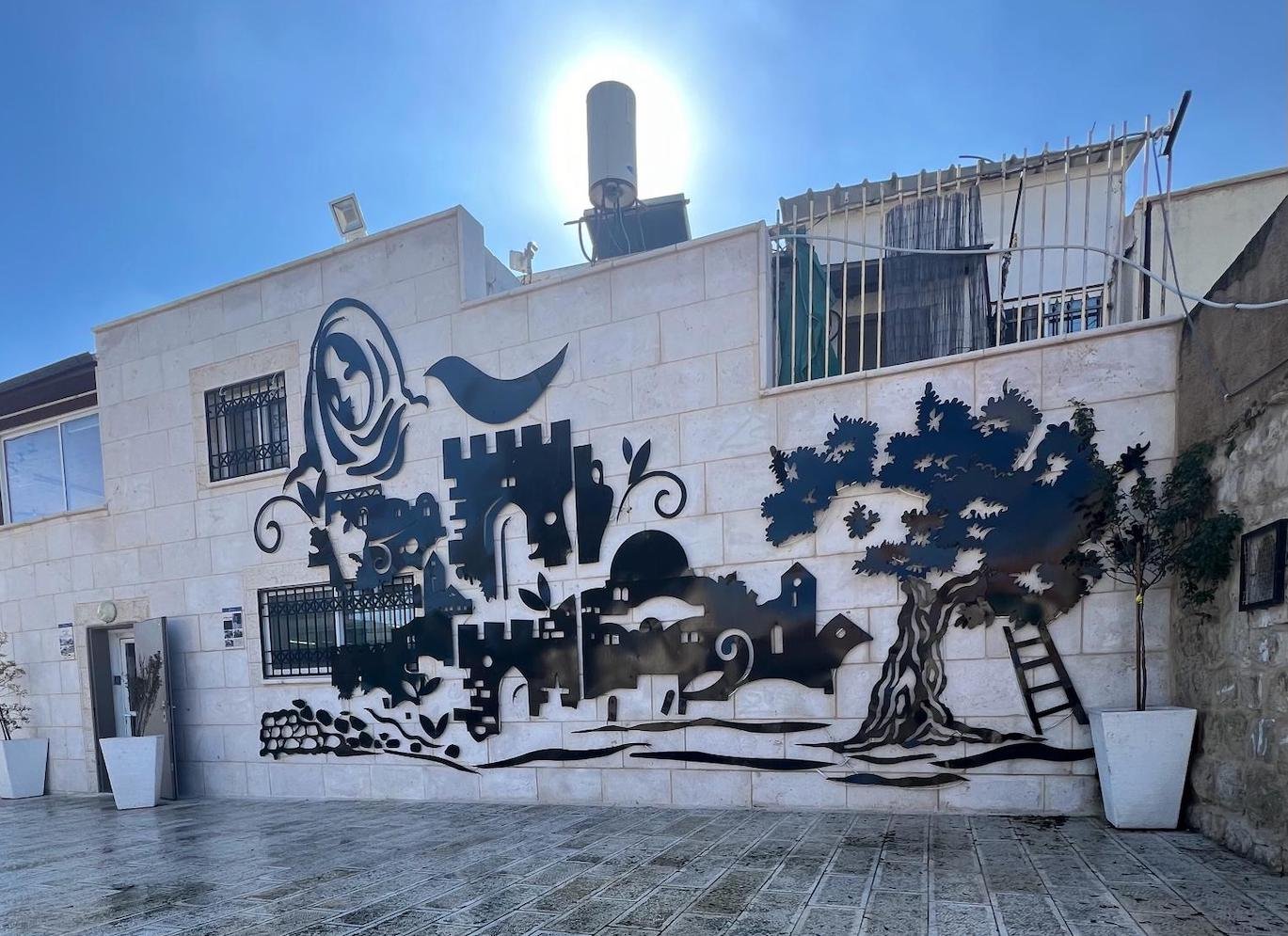When the renowned Jerusalem oud player Mustafa al-Kurd passed away in his home on February 19, his funeral was quite simple, attended by a few Jerusalem intellectuals. The Palestinian Ministry of Culture issued a short eulogy carried by the official Wafa news agency. One might have expected the death of the 79-year-old popular nationalist musician to create more of a stir: his songs against the occupation and settlements in the 1970s and 1980s brought him to popular consciousness. One song dedicated to his son Darwish includes a line that is immediately recognized by Palestinians everywhere:
هات السكة هات المنجل اوعى بيوم عن ارضك ترحل
Give me the plowshare and sickle and be sure never to leave your homeland.
Mustafa had been a key figure in the national music scene in Palestine and created many of the musical accompaniments to plays produced by the famous Palestinian National Theatre (popularly referred to as el-Hakawati) in East Jerusalem, which he had helped establish. He also performed widely in European capitals, in concerts that combined the oud with the flute.
The low turnout at his funeral is consistent with the huge decline in Palestinian cultural activities in East Jerusalem, especially since the al-Aqsa Flood Operation on October 7, 2023, and Israel’s war on Gaza that followed.
On October 7, the theater had planned to relaunch its Children’s Festival. This formerly annual event had not been held for a few years, in part because of the coronavirus pandemic. The theater administrators had hoped to revive that tradition and worked tirelessly to plan a memorable opening event.
Theater Director Amr Khalil met with Jerusalem Story and lamented: “We woke up to a new reality on this day that led us to cancel the opening ceremony show, then cancel the entire festival. We have since entered a state of intense anticipation and fear of what is coming.”1




